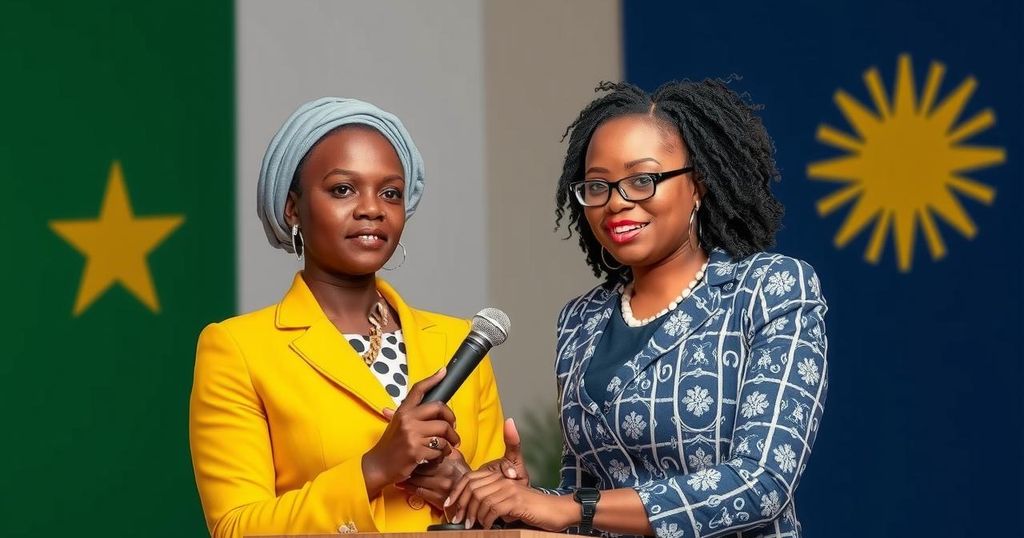Namibia’s Vice President Leads Controversial Presidential Election

Namibia’s Vice President Netumbo Nandi-Ndaitwah leads in the presidential election despite serious technical issues that led to a three-day extension of voting. The opposition has rejected the results, claiming illegality, and plans to challenge the election in court. With SWAPO facing public discontent over economic challenges, the election results could signal major political shifts.
Namibia’s Vice President, Netumbo Nandi-Ndaitwah, has emerged as the leading candidate in the recent presidential election, which has been marred by various technical difficulties. The election, held on November 27, 2024, was characterized by a shortage of ballot papers and other issues, prompting electoral authorities to extend the voting period until November 30. Many opposition parties have raised concerns regarding the legality of this extension and the election process as a whole.
Nandi-Ndaitwah, representing the ruling South West Africa People’s Organization (SWAPO), reported a significant lead with approximately 56% of the votes counted so far, although only 220,000 out of 1.4 million votes have been verified. Her main competitor, Panduleni Itula from the Independent Patriots for Change party, has garnered around 27%. Despite the potential for a historic election, these irregularities cast doubts on the integrity of the results.
The election results are highly contested, with opposition leaders indicating their intent to file a legal challenge against the voting process. They assert that the recent issues call into question Namibia’s democratic integrity, a nation generally recognized for its stable electoral environment in southern Africa. Namibians have endured rising unemployment and economic challenges under SWAPO since its independence from apartheid rule in 1990, which has heightened public frustration.
In a broader context, similar trends of discontent are observed across southern Africa with ruling parties facing increasing scrutiny and protest against governance failures. Notably, following the election in neighboring South Africa, the African National Congress lost its majority, and significant political shifts have been witnessed in Botswana and Mauritius as well.
While final official results are anticipated this week, the ongoing disputes and the opposition’s legal claims suggest that Namibia’s political landscape may soon experience further turmoil amidst calls for accountability.
The article centers on the recent presidential election in Namibia, highlighting the political tensions following the election process. Notable is the role of Netumbo Nandi-Ndaitwah, a prominent figure from the ruling SWAPO party, who is poised to become Namibia’s first female president. However, the election results are tainted by allegations of electoral irregularities, with opposition parties vocally rejecting the legitimacy of the voting procedure. The situation reflects broader discontent not only in Namibia but throughout the southern African region, where several long-standing political parties are facing challenges to their governance amid a climate of economic hardship and public dissatisfaction.
In conclusion, Namibia’s presidential election presents a critical moment for the nation’s democracy, as Vice President Netumbo Nandi-Ndaitwah leads in early results amidst significant allegations of electoral malpractice. The opposition’s intent to contest the election results indicates a contentious political environment, raising questions about the future stability of governance in Namibia, particularly in light of regional trends where ruling parties are increasingly challenged to maintain authority. The coming days will be pivotal as final results are awaited and potential legal proceedings unfold.
Original Source: apnews.com








